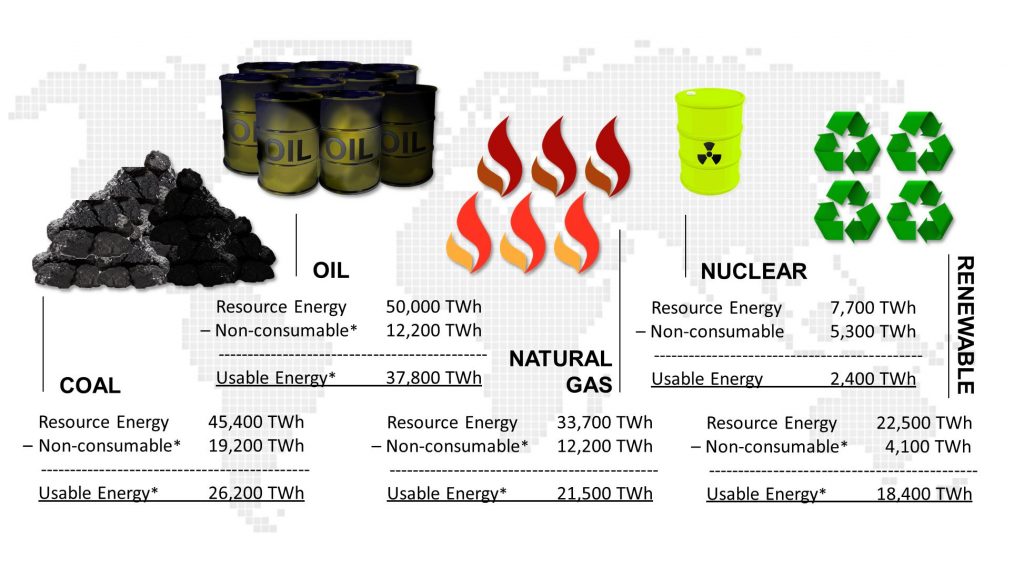Fossil fuels will vanish in the future – for sure! What we don’t know is the exact point in time when this is going to happen. Based on the BP Statistical Review of World Energy 2016, we find that fossil fuels will last up to 100 years. Proven oil reserves, which will last for the next 50 years, are expected. However, BP has an interest in keeping the energy reserve numbers great: Any other message would make the oil price jump up and renewable energy would become less unattractive. Especially when considering the rising demand for energy (e. g. in China) we need to prepare for earlier shortages. But what does it take to substitute fossil energy sources by renewable ones?

World energy consumption in 2014 mainly adopted from the simplified energy balance sheet table of the IEA; an asterisk (*) indicates that the data was not fine-grained enough to guarantee full accuracy [1][2]
Not only do the numbers reflect an incredible thirst for energy, but it also shows to which extent we damage earth by exploiting these resources. The bottom line is that this energy supply from coal, oil, natural gas and nuclear energy (~107,000 TWh) must be substituted. What are the options?
References
| ↑1 | “Key world energy statistics”. International Energy Agency. |
| ↑2 | “Nuclear power in the world today”. World Nuclear Association. |







